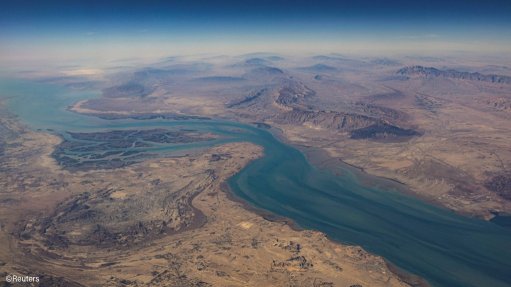Plastics SA calls for flexible, country-specific approaches at UNEA
Industry organisation Plastics South Africa (SA) calls for the special needs and circumstances of Africa to be recognised and for the respective capabilities of each country to be analysed in light of national circumstances at the United Nations Environmental Assembly fifth session meeting (UNEA 5.2) in Nairobi, Kenya, from February 28 to March 2.
“Each country’s local and regional context is different, as is the availability of funding and other resources to develop and implement effective waste management solutions. It is important to recognise that nations have unique and different socio-political climates that should be taken into consideration,” says Plastics SA executive director Anton Hanekom.
The world’s environmental leaders will meet to draft a blueprint for a global plastics treaty that will address the issue of marine litter and plastic pollution in the environment. It is expected that the agreement will be based on the principles of equity and shared responsibilities, although South Africa will advocate for country-specific approaches.
The Department of Forestry, Fisheries and the Environment (DFFE) has said government will give its support to the establishment of an Inter-Governmental Negotiating Committee (INC) under UNEA to negotiate an internationally legally binding instrument on plastic pollution.
The resolution proposes addressing plastic pollution through establishing necessary targets, definitions, methodologies, formats and obligations; addressing product design and use, including compounds, additives and harmful substances, as well as intentionally added microplastics; and promoting national action plans to prevent, reduce and remediate plastic pollution - tailored to local and national circumstances and the characteristics of specific sectors.
Additionally, the proposed provisions will aim for increasing knowledge through awareness-raising and information exchange on best practices to prevent plastic pollution and promote behavioural change; monitoring and reporting on national and international progress on implementation of the agreement; and providing scientific and socioeconomic assessments and monitoring and reporting on plastic pollution in the environment.
Further, the proposal aims to address pollution through cooperating and coordinating with relevant regional and international conventions, instruments and organisations; specifying financial and technical arrangements as well as technology transfer assistance to support the implementation of the convention; addressing implementation and compliance issues; and promoting research and development into innovative solutions.
REGULATIONS RISK
Hanekom says the industry shares the vision, passion and driving ambition to prevent leakage of plastic into the environment and achieve universal access to waste collection.
“We fully acknowledge and support the urgency to address the issue of plastic waste in the environment and marine plastic debris. However, Plastics SA does not believe that this will be successfully achieved by regulating plastic products or production.
“Plastics can play a valuable and important role in achieving the UN Sustainable Development Goals, provided that they are responsibly and sustainably produced, used and recovered in a circular economy,” Hanekom avers.
In Plastics SA's opinion, enforcing a one-size-fits-all approach on all countries would be catastrophic and short-sighted. The global agreement should allow for flexibility and room for country-specific approaches, he says.
“Only by creating inclusive platforms where governments, the industry, civil society and academia can negotiate and collaborate will we be able to identify, develop and replicate workable solutions that will ultimately benefit the environment,” Hanekom asserts.
“Plastics SA proposes that countries should be allowed domestic flexibility to develop plans for eliminating plastic waste leakage that are regionally appropriate, based on local circumstances and supported by enabling policies. South Africa needs new, additional and predictable financing, technology transfer and the development of increased capacity to implement our plans.
“We believe that a global agreement could be used as an opportunity to accelerate the progress that we have already made in this regard. By building a stronger foundation for effective waste management, we can ensure that used plastics are kept in the economy, recovered and recycled, and out of the environment,” Hanekom states.
Role-players in the global plastics industry have proposed a set of five principles aimed at eliminating plastic waste, accelerating a circular economy for plastics, and serving as the basis for a global agreement, he notes.
The five principles include having all nations agree on eliminating plastic waste while providing flexibility and support to help meet the needs of individual nations, and achieving widespread access to waste collection.
Further, the industry calls for recognition of the role plastics play in a lower-carbon future, supporting innovation in product design and recycling technology and measuring progress made, Hanekom details.
Article Enquiry
Email Article
Save Article
Feedback
To advertise email advertising@creamermedia.co.za or click here
Press Office
Announcements
What's On
Subscribe to improve your user experience...
Option 1 (equivalent of R125 a month):
Receive a weekly copy of Creamer Media's Engineering News & Mining Weekly magazine
(print copy for those in South Africa and e-magazine for those outside of South Africa)
Receive daily email newsletters
Access to full search results
Access archive of magazine back copies
Access to Projects in Progress
Access to ONE Research Report of your choice in PDF format
Option 2 (equivalent of R375 a month):
All benefits from Option 1
PLUS
Access to Creamer Media's Research Channel Africa for ALL Research Reports, in PDF format, on various industrial and mining sectors
including Electricity; Water; Energy Transition; Hydrogen; Roads, Rail and Ports; Coal; Gold; Platinum; Battery Metals; etc.
Already a subscriber?
Forgotten your password?
Receive weekly copy of Creamer Media's Engineering News & Mining Weekly magazine (print copy for those in South Africa and e-magazine for those outside of South Africa)
➕
Recieve daily email newsletters
➕
Access to full search results
➕
Access archive of magazine back copies
➕
Access to Projects in Progress
➕
Access to ONE Research Report of your choice in PDF format
RESEARCH CHANNEL AFRICA
R4500 (equivalent of R375 a month)
SUBSCRIBEAll benefits from Option 1
➕
Access to Creamer Media's Research Channel Africa for ALL Research Reports on various industrial and mining sectors, in PDF format, including on:
Electricity
➕
Water
➕
Energy Transition
➕
Hydrogen
➕
Roads, Rail and Ports
➕
Coal
➕
Gold
➕
Platinum
➕
Battery Metals
➕
etc.
Receive all benefits from Option 1 or Option 2 delivered to numerous people at your company
➕
Multiple User names and Passwords for simultaneous log-ins
➕
Intranet integration access to all in your organisation

















